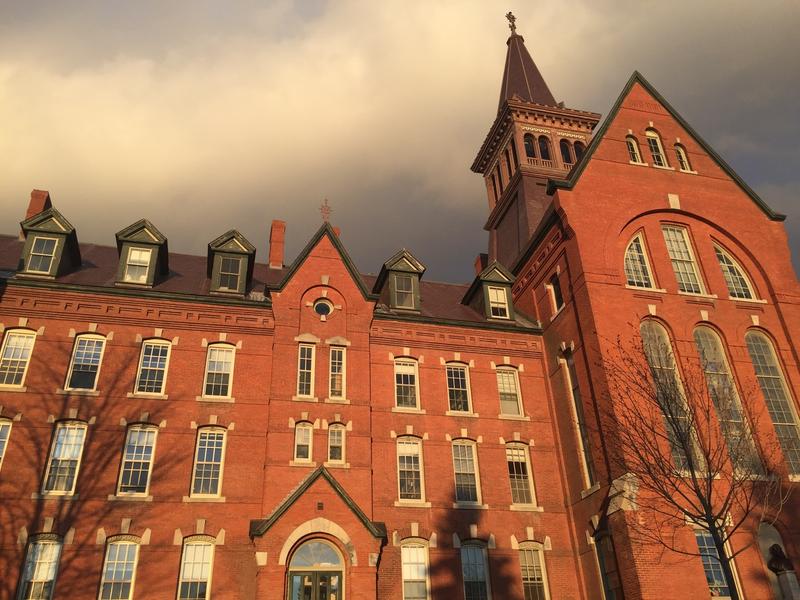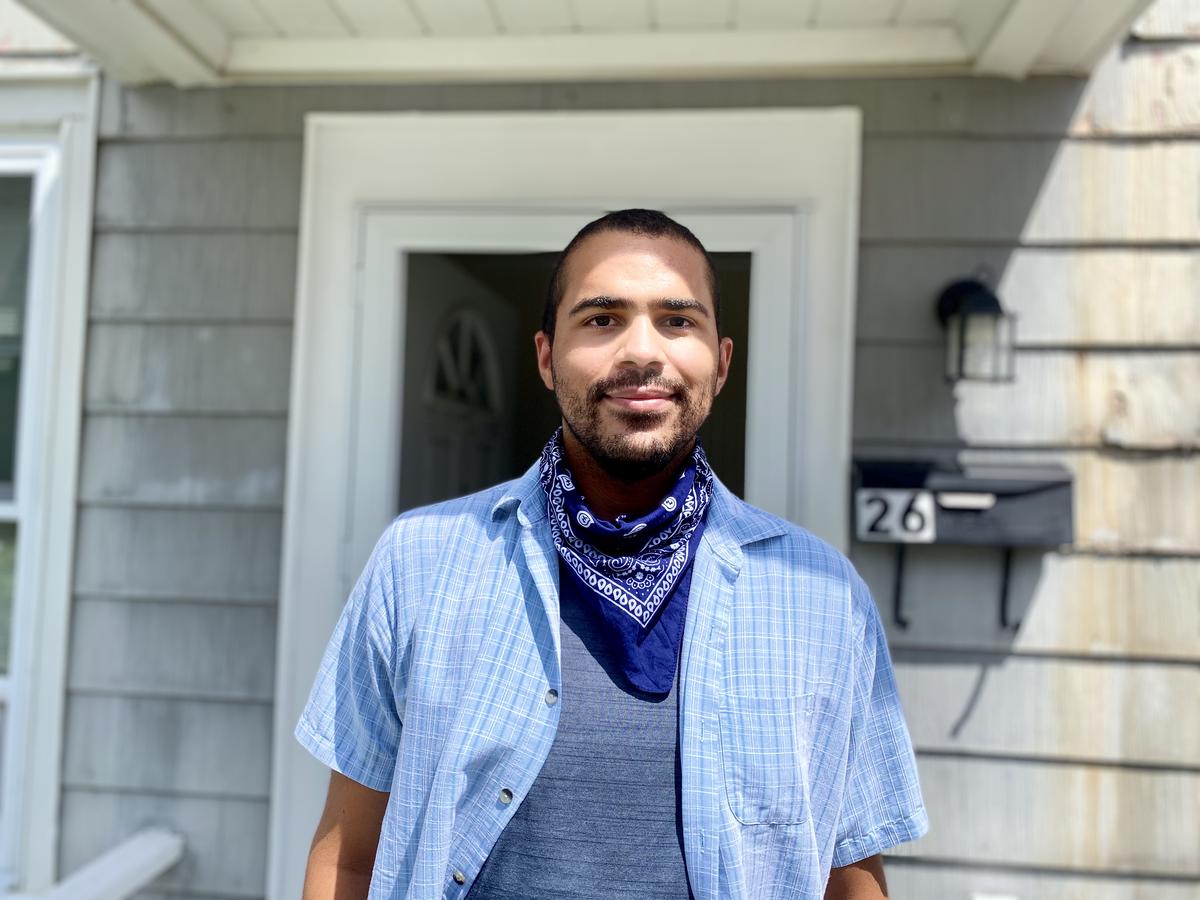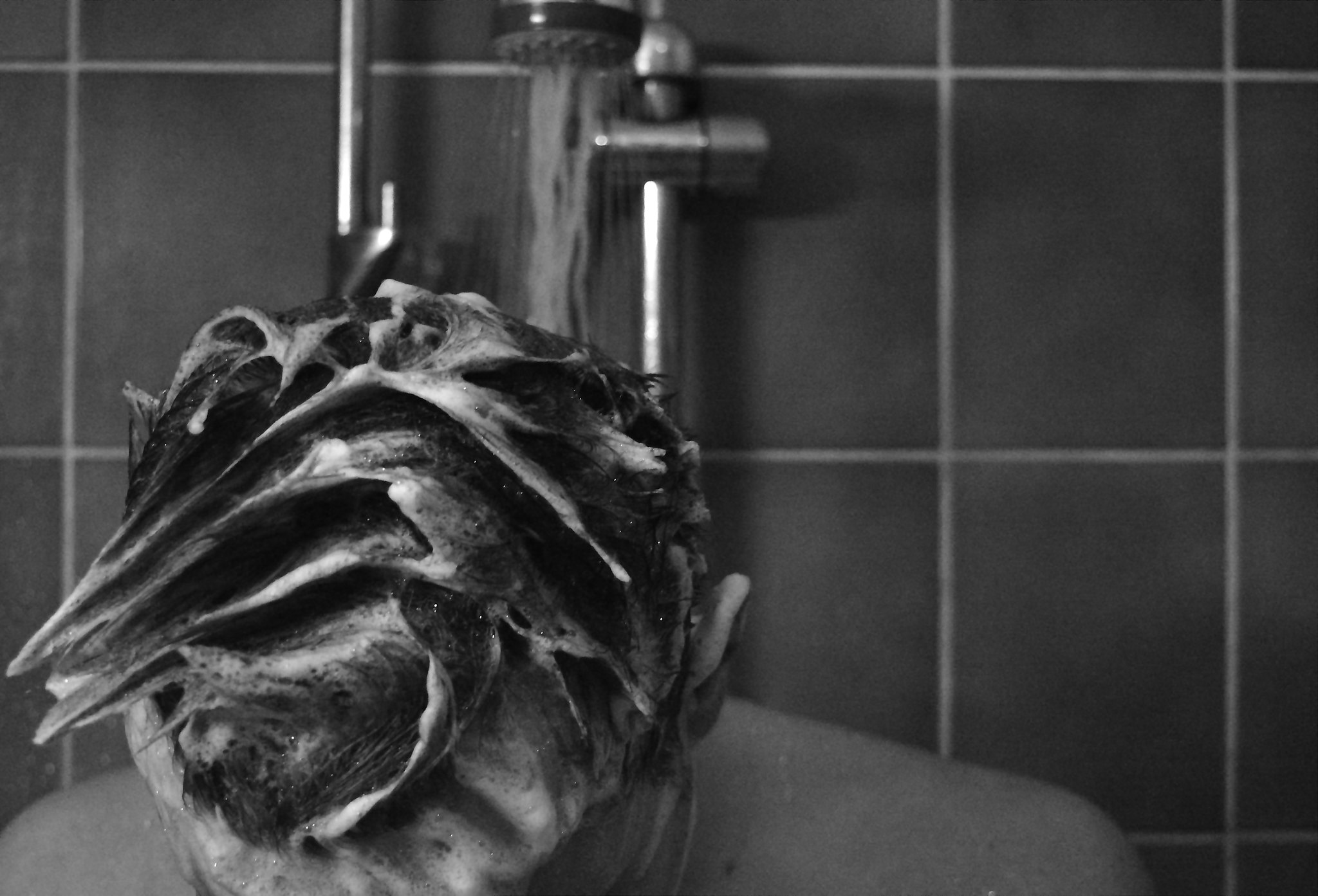Episode 213: Bracing For The Return Of College Students; Why A Doctor Quit Showering Five Years Ago
College students are heading back to some New England campuses. This week on NEXT, how schools are dealing with the influx of students during a pandemic. Plus, a doctor who quit showering five years ago talks about the impact of “too much” hygiene on skin health. And a New Hampshire town considers how to honor a Black Revolutionary War hero who did not get his dues.
Despite Community Concerns, Some New England Schools Bring Thousands Back To Campus

University of Vermont (Angela Evancie/VPR File)
Some colleges in New England are starting to welcome students back to campus, with schools taking different approaches as they deal with this influx of students in the middle of a pandemic.
The University of Connecticut already has some students on campus, and administrators recently punished a group of students caught on video partying. UConn revoked their housing. But as Connecticut Public Radio’s Frankie Graziano reports, some community members are worried that the punishment may miss the mark and actually expose residents in the area to COVID-19.
A few hours north at the University of Vermont, in-person classes start Monday. College, state and local officials say they’re confident UVM can safely bring nearly 12,000 students to campus while containing potential outbreaks of the coronavirus. Back in April, the university committed to in-person classes for students this fall, and as Vermont Public Radio’s Liam Elder-Connors reports, UVM has not wavered from that position — despite the fact that hundreds of colleges around the country that made similar pledges have backtracked as the pandemic got worse.
In A New Hampshire Town, Calls To Put Up Statue Of Black Revolutionary War Hero

Brian Ward, a resident of Newmarket, N.H., has seen only one statue honoring a Black American, but that could soon change. (Sean Hurley/NHPR)
On NEXT, we’ve reported on the controversy over removing statues of historical figures. But in Newmarket, New Hampshire, people are talking about putting a statue up. New Hampshire Public Radio’s Sean Hurley reports there is growing interest in commissioning a statue of Wentworth Cheswill, a Black Revolutionary War hero who never got his dues.
“It kind of makes me feel better … being able to point and say, ‘Yeah, my people have been here. We’ve contributed here. We’re not the outsider,'” said Brian Ward, 28, a health care reporter who lives in Newmarket.
Dr. James Hamblin On How “Too Much” Showering Could Impact Skin Health

(Silke Remmery/Flickr
Dr. James Hamblin hasn’t taken a shower in five years — or, at least, not with the usual shampoo and soap. Occasionally, he will rinse with water when he feels like it. Hamblin’s choice came from research and a desire to be more minimalist. He’s a preventative medicine physician, lecturer at Yale University and staff writer at The Atlantic. And when Hamblin began researching his new book “Clean: The New Science of Skin and the Beauty of Doing Less,” he said he found that many of our assumptions about the link between personal hygiene and health, were not backed by science. (To be clear, it’s still important to wash your hands, Hamblin said. Especially during a pandemic.)
In an interview with NEXT, Hamblin says if you lather your body with more and more soap, this excessive showering could disrupt the balance of your skin’s microbiome, increasing conditions like dry skin or eczema.
NEXT Wants to Hear From You:
Last week, we asked you: If you hear a comment that you perceive as racist, ignorant or insensitive, are you more inclined to speak up? Or do you think it’s not your place to confront that person? Xianti Dahabi, a listener from Manchester, New Hampshire, called with this comment.
“I absolutely think we all have a responsibility to speak up. I understand people saying that it’s not our place. We were all brought up to be polite … but it’s everyone’s job to put a cap on racism, and then to slowly reverse it, slowly dissolve it into understanding. And it’s going to take a lot of healing, and it means everybody speaking up.”
We heard from other listeners, including Tommie Morphew, who says it really depends on how egregious the statement is: “There are situations where I would absolutely correct someone, but most of the time, it’s not really my place.”
This week, in preparation for a series of specials we’re doing in September on racism in New England, we’d like to know what you’ve learned about the history of racism in our region, whether it was from school, stories from family, or other life experiences. Leave a voicemail on our comment line: 860-275-7595. Or send us an email at next@ctpublic.org.
And a special request: In this time of reflection, we want to know what you think about NEXT. Please take our quick survey to tell us what you like about the show and where we can improve. Looking forward to hearing from you.
Also On This Week’s Show:
- As More Four-Year Colleges Flip Online, Some Students Take A Second Look At Community Colleges (WGBH)
- Industry Heavyweights To Invest In UMaine Offshore Wind Project Near Monhegan Island (Maine Public)
- With ‘State Vs Natasha Banina,’ Needham’s Arlekin Players Theatre Draws International Attention (WBUR)
About NEXT
NEXT is produced at Connecticut Public Radio
Host/Producer: Morgan Springer
Executive Editor: Vanessa de la Torre
Senior Director: Catie Talarski
Intern: Daniela Luna
Contributors to this episode: Frankie Graziano, Liam Elder-Connors, Kirk Carapezza, Sean Hurley, Fred Bever and Cristela Guerra.
Guests: James Hamblin and John Chisholm.
Music from New England musicians: Todd Merrell, “New England” by Goodnight Blue Moon, “So Blue” by Audio Jane, “Love Went To Gamble” by Emily and Jake, “Sandbar Inn” by Wren Kitz, “100 Year Storm” by Adam Ezra Group, “My Heart” by Francesca Blanchard and “Chasm” by Muddy Ruckus.
New to NEXT? You can find every episode or one you missed within our archives.
We want your feedback! Send critiques, suggestions, questions and ideas to next@ctpublic.org. Help us spread the word! If you like what you hear, rate and review us on iTunes.
